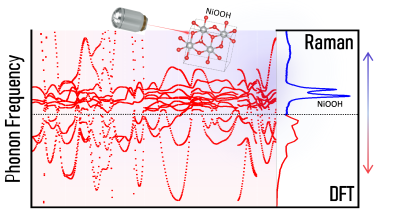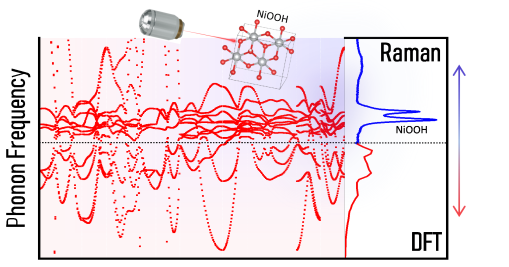Our Mission
The mission of the Surface Science Laboratory is to advance the fundamental understanding of surfaces and interfaces in functional materials and devices for renewable energy conversion and storage. We study the chemical and physical processes, energetics and dynamics of processes at surfaces and interfaces of materials used in electrolysers, solar cells, and batteries. For this, we use integrated ultrahigh vacuum systems which combine different thin film preparation techniques and surface analysis tools. Next to vacuum experiments, we aim at understanding materials and devices during operation under realistic conditions using advanced spectroscopic and structural methods. Moreover, we develop novel spectroscopic approaches to unravel complex structure-property-function relationships.

Quickstart
News
-
![]()
![]()
Redox chemistry of LiCoO2, LiNiO2, and LiNi1/3Mn1/3Co1/3O2 cathodes: Deduced via XPS, DFT+DMFT, and charge transfer multiplet simulations
January 27, 2026
Now online
Dr. Maximilian Mellin, fresh doctor from the SSL studied how the electronic structure of Li–transition-metal oxide cathodes evolves during lithium removal during charging, a key process governing battery performance.
-
![]()
![]()
Publication on Influence of the Metal Support-Catalyst Contact on the Performance of NiO-Based O2 Evolution Electrocatalysts
November 16, 2025
Now online
A phase-resolved analysis of NiO-derived materials relevant to the oxygen evolution reaction, combining ground-state DFT + U calculations with operando and in situ Raman spectroscopy is presented. It demonstrates that the computed vibrational and electronic properties serve as reference points, enabling meaningful correlation with the Raman response of structurally complex, electrochemically conditioned catalysts. By systematically dissecting the signatures of NiO, Ni(OH)2, and NiOOH across distinct crystallographic configurations, they have developed a consistent framework that correlates different NiO phases relevant to the OER, clarifying their metastability.
-
![]()
![]()
Publication on Influence of the Metal Support-Catalyst Contact on the Performance of NiO-Based O2 Evolution Electrocatalysts
November 10, 2025
Now online
This work highlights the critical role of the metal support layer in modulating the electrocatalytic behavior of NiO thin films for the oxygen evolution reaction. Through comparative analysis of Pt, Au, and Ni support metals, we demonstrate that the interfacial electronic structure governed by band alignment, charge transfer resistance, and surface chemistry directly impacts the kinetic and thermodynamic aspects of OER activity.








